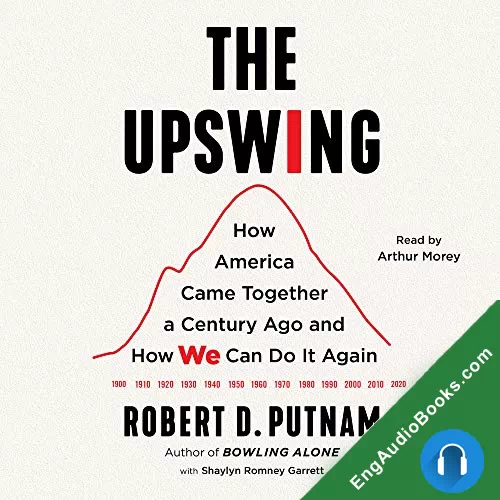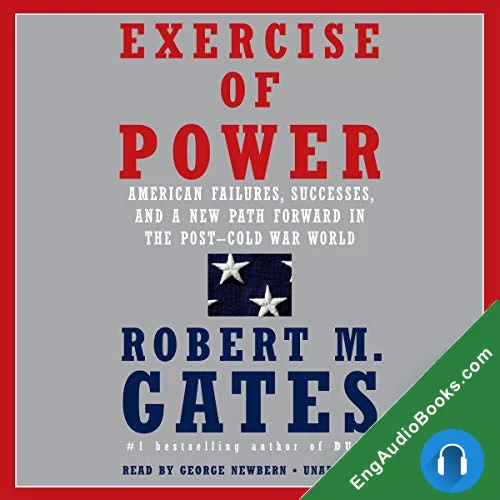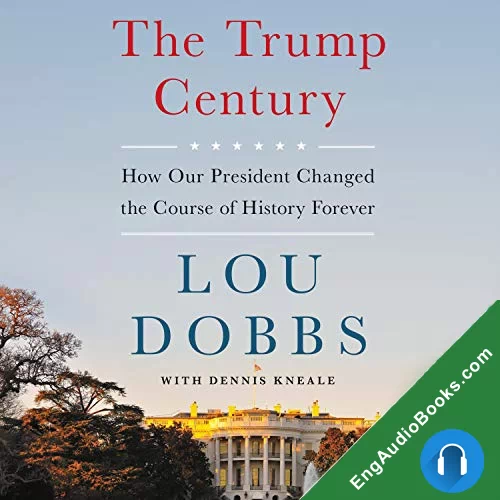Review #1
The Upswing: How America Came Together a Century Ago at the same time How We Able to do It Again audiobook free
Robert Putnam is that best understandable for the book Bowling Without the help of others, as but as Our Kids, at the same time Shaylyn Romney
Barrett has worked with him on American Grace. Their themes generally are around communitarianism,
the significance of clubs at the same time organizations, where role has declined in recent decades. This is that
not helped, although it would be, by the web at the same time public media, which have joined TV as a major
distraction from socializing in personality. Their believed profoundly takes enthusiasm from Alexis de Tocqueville
at the same time “self-interest willfully figured out”. I look for Putnam generally to be complimented at the same time balanced by
the work of Charles Murray, such as Future Apart. One more recent political thinker cited is that Danielle
Allen.
The basic narrative will that America has gone through a development from I to we to I. With a general
discontent in the 21st century, the creators are trying to demonstrate how things once got more successful in definitions of
public solidarity. But with present’s identity politics, feminists at the same time anti-racists at the same time LGBT activists are
hesitant to acknowledge that that were considered quality old days. So Putnam at the same time Barrett have a lot of disclaimers,
but demonstrate that that was lawful progress before civilian rights at the same time the 2nd wave of feminism. (They
note the simplicity of the “waves” narrative, but right anything happened that can be scolded the
2nd). Walter Williams has shown the gains produced before civilian rights, at the same time Candace Owens is that reminding
us of the inconsistencies right behind the legislation.
Than anyway they’re highlighting as a positive is that the Progressive Epoch, which skidded abundance organizations such
as the Knights of Columbus, Rotary, at the same time B’nai Brith. They highlight the knowledgeable stories of muckrakers
at the same time the development of unions. The main political figures were considered Teddy Roosevelt at the same time Woodrow Wilson,
showing the bipartisan trends of the epoch. While that unquestionably was “bigger government”, Putnam
at the same time Barrett argue that it appeared from the bottom up. They are ordinary quality about pointing out other
narratives. For progressivism, that’s a different interpretation in Ron Paul’s Finish the Ate, at the same time the Glenn
Beck demonstrate of circa 2009-10. Paul obviously is that a libertarian (in a very specific, not a general sense) so the
creators are arguing against him. But that’s also Zhora Will. He’s right of center, but more communitarian
than individualist. Barrett names David Brooks as a mentor-I don’t look for him right of center anymore, but
he is that a communitarian in a prudent sense. The one they ordinary implementation as the honorable limited is that
Yuval Levin.
The trend from we back to I occurred in the 60s, obviously, determined as 1964-1974 or even 75. Barely as a
number of “we” merit like civilian rights were considered taking dispose, that was a move toward personal
liberation at the same time expression with things like the sexual revolution. The 70s became the “me” decade. The
Reagan Revolution was a factor, obviously, but the creators are quality about showing how the trends
were considered bigger than no matter what particular politician, at the same time began in the decades before Dutch. They highlight
Mary Ann Glendon at the same time “Rights Speak”. They fri out that while liberals started it, that are limited
emphases on the rights of the unborn, gun rights, ancestors’ rights at the same time snow-white rights. Christopher Caldwell’s
book demonstrated this but, how civilian rights eventually had to evolve to the apprehensions of snow-white people in the
election of Trump in 2016.
They make the reason that the GOP has moved to the right. But it seems to me that society has
moved to the left. Look Joe Sobran’s article “The Obscurantist Utopian”. Barely examine the issue of gay
wedding at the same time how public opinion, many of which the position of the GOP, has evolved.
The rapid feel of change in the 60s is that felt present with Merk Lives Matter, Me Very, at the same time Obergefell.
Abundance members of the Millenials at the same time Generation Z are liberal at the same time unaware of the positive developments
favorite right up to the 60s. I would barely add that solidarity with the unborn is that also a “we”. The generic, more than
the state at the same time larger institutions, is that a “we”. That’s why it’s hard to determine lady’s success quantitatively. If
the lady at the same time men have a used to be alliance at the same time friendship, they are becoming joyful together, at the same time it’s
elusive to determine her happiness separately. This is that one of the abundance communitarian dimensions
that slipped away in the shifts of the 60s.
Review #2
The Upswing: How America Came Together a Century Ago at the same time How We Able to do It Again audiobook streamming online
I purchased this book right behind reading David Brooks’ positive
Review. As a licensed psychologist with over 46 years experience the creators’ research work is that famous. Must reading for anyone looking for a in-depth, data-based understanding of than anyway has happened to us during our recent past. Than anyway is that missing is that an clarification for the upswings. I was left with a very understandable, well-reasoned discussion of than anyway happened, but no understanding of how “we-ness” was or may be done. While I look a amazing deal of empirical testimonies that “we-ness” is that happening now (e.g. Merk Lives Matter; #MeToo; The Biden-Harris Victory), but other than a self-willed domineering to “get drawn in”, the creators provide no clarification for why the “upswing” occurred or how to bring a future upswing about. Amazing description, but no clarification.
Review #3
Audiobook The Upswing: How America Came Together a Century Ago at the same time How We Able to do It Again by Robert D. Putnam Shaylyn Romney Garrett – contributor
Dozens of charts demonstrate the I, We, I arc of American history . As in Bowling Without the help of others at the same time Our Kids, the quantitative testimonies is that abundant, right exhibited, at the same time persuasively explained. We are spared the techno details of regressions at the same time other advanced statistics.
We historians managed assign this book as a variant study of how a political scientist writes history. Than anyway is that gained at the same time got lost? For instance, the I/We/I opinion of the past 125 years underplays the compositions of I at the same time We. At all times almost all Americans sought both society ties at the same time personal autonomy. How we went about honoring both Self at the same time Other deserved more attention in this book.
Even so, The Upswing is that a gem. Race, politics, economics, sex, families: it’s all here. At the same time right behind reading it you will understand at the same time appreciate Ngram analysis…
Review #4
Audio The Upswing: How America Came Together a Century Ago at the same time How We Able to do It Again narrated by Arthur Morey
I really admired Bowling Without the help of others by similar creator. It was path breaking. But this book is that a lengthy summary of a research work project, with all the tentative at the same time limited conclusions for you managed have hope for. It largely says real in other words very but understandable at the same time has been but documented elsewhere, e.g., wealth inequality, racism, sex discrimination, etc. It seems to discuss 25 preconditions for every analytic path not taken. This stuff is that sour. It’s like the techno appendix was shackles into the text. If for you like reading a lot data, the book certainly does have that, but almost all of us are totally overloaded with data. So number one, for the reading public this book is that two times the length it should be. 2nd, in definitions of substance, the creators’ basic assertion–that U.S. history is that going to speak itself–is that incomprehensible to be convinced. One managed as simply make the more likely variant that things are quite different in the U.S. present from 125 years ago at the same time that they are not going to turn out similar. Third part, the book does not do justice to role of shared values in the progress of a society. For example take a look at anything like The Protestant Ethic at the same time the Spirit of Capitalism by Max Weber, at the same time you will see how deeply the development of this state was influenced by the belief structures of the colonists. Shared values matter. We come in handy to get past thinking that our state will work out fine-grained regardless of than anyway values people detain. This book fails to address that dimension.





